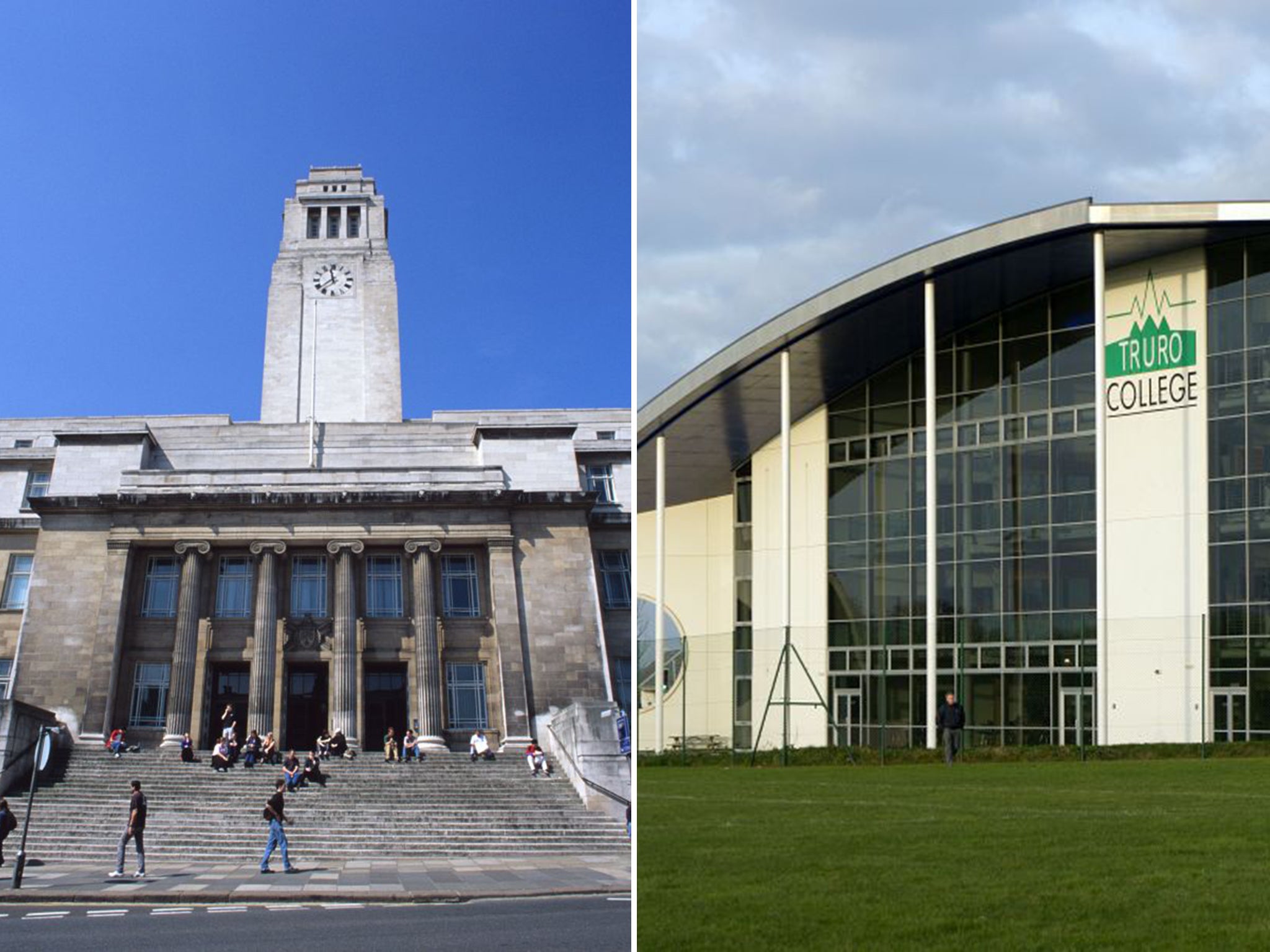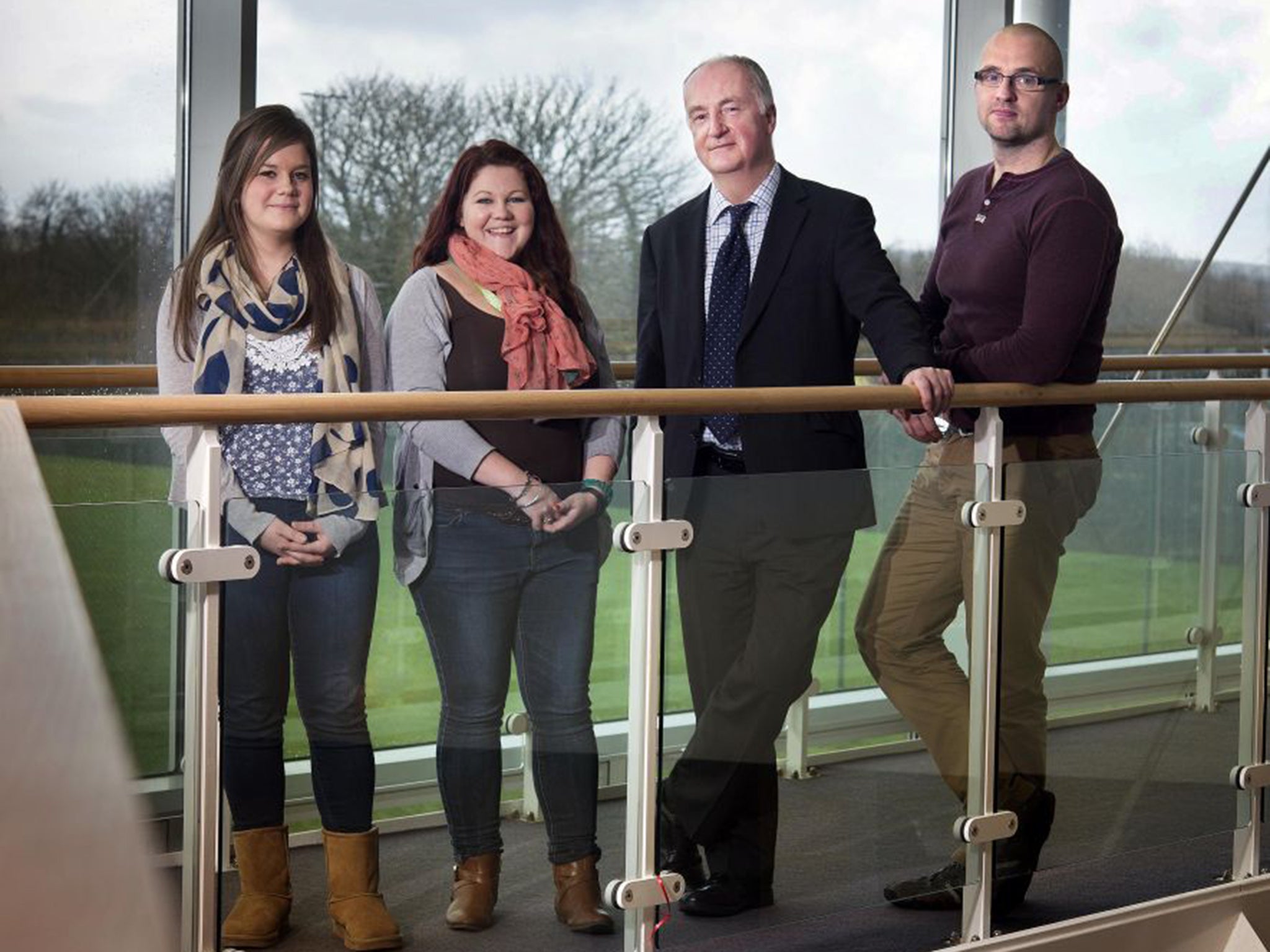Thousands of students shun universities in favour of studying for their degrees at local further education colleges
Convenience and more one-to-one contact with lecturers behind 11.8 per cent rise in the number of undergraduates studying at FE colleges

Thousands of students are shunning the UK’s traditional universities to take their degrees in further education (FE) colleges down the road.
The number of undergraduates in FE colleges rose 11.8 per cent in the two years up to 2012-13 while traditional universities suffered a drop.
This rise is partly explained by the Government’s relaxation of student recruitment curbs, allowing institutions to recruit as many students as they wanted with an A- and two B-grade passes at A-level last year, which allowed 3,000 more students into further education colleges.
In all, there are an estimated 115,000 students studying for their degree courses at FE colleges.
Martin Doel, chief executive of the Association of Colleges, said that the colleges were tapping into two “cold spots” for university applicants.
“The first is geographical – colleges where there is no university in the vicinity,” he said. “There will be a number of students who, for various reasons, wish to study closer to home.” So, in towns up and down the land, such as Truro, Skipton, Blackpool and Grimsby, the local FE college is, in effect, the local university.
“Also, consistently strongly, in terms of student feedback, they like the greater one-on-one contact you have with your lecturer at a FE college,” he said. “There are some students for whom the small classroom is preferable to the lecture theatre.”
Truro and Penwith College in Cornwall fits into that category. It started degree provision about a decade ago with just a handful of students taking degrees, but now caters for around 1,000.
“I think there are many reasons for that,” said David Walrond, the college principal. “Certainly, our location: it's 80 miles from Penzance to Plymouth and the round trip of 160 miles would put people off from going there. We have a lot of young people who want to stay locally and go to higher education while they’re living at home.”
Typical of these is 26-year-old Gem Reader, who is taking a PGCE course with the aim of becoming a lecturer at the college. “I started at the college in 2005 and did my A-levels, and started a foundation degree here four years ago. When I was here the last time, I was close to my teachers and I didn’t want to give up my flat and move away to go to university.”

Zoe Tullett, aged 22, tried enrolling at a university first. “I went to a big university and came home for medical reasons,” she said. “I thought maybe a big institution wasn’t for me because you don’t get much one-to-one time and my lecturers weren’t that accessible.”
Ms Tullett, who is studying for a BA in education and training, wants to be a primary school teacher. “I really like it here,” she said. “Definitely, I wasn’t doing as well in the university – I was really struggling.”
Lower fees are another major factor. While most universities charge the maximum £9,000 a year for all of their courses, many FE colleges are charging between £4,000 and £6,000 a year for degree courses. Some do charge more than £6,000 and even approach the £9,000 ceiling, but this is likely to be for courses that are more expensive to put on – such as agriculture, engineering and social work.
Mr Doel said the second “cold spot” for universities was the tailor-made degree for specific employment. “In Bristol, there is an excellent university – but there are also aircraft manufacturers based there and you wouldn’t get the university offering HNCs and HNDs in aircraft engineering or similar courses,” he said.
“Some colleges are doing what the old polytechnics used to do,” he said. “You’re seeing increasing interest among colleges in providing that. They’ll see it as moving forwards, whereas the new universities (former polytechnics) will see it as moving backwards and universities don’t want to move backwards.”
Ian Woodland, 35, is attracted by such a “cold spot”. He is studying for a degree in sports performance at Truro and Penwith to enhance the business he is running at the same time, Heart, Body and Soul Solutions. The business helps firms to combat stress among employees and cut absenteeism.
Enrolling helped him to “earn while he learns”, he said, in a way that he could not if he travelled to a traditional university further away.
Join our commenting forum
Join thought-provoking conversations, follow other Independent readers and see their replies
Comments